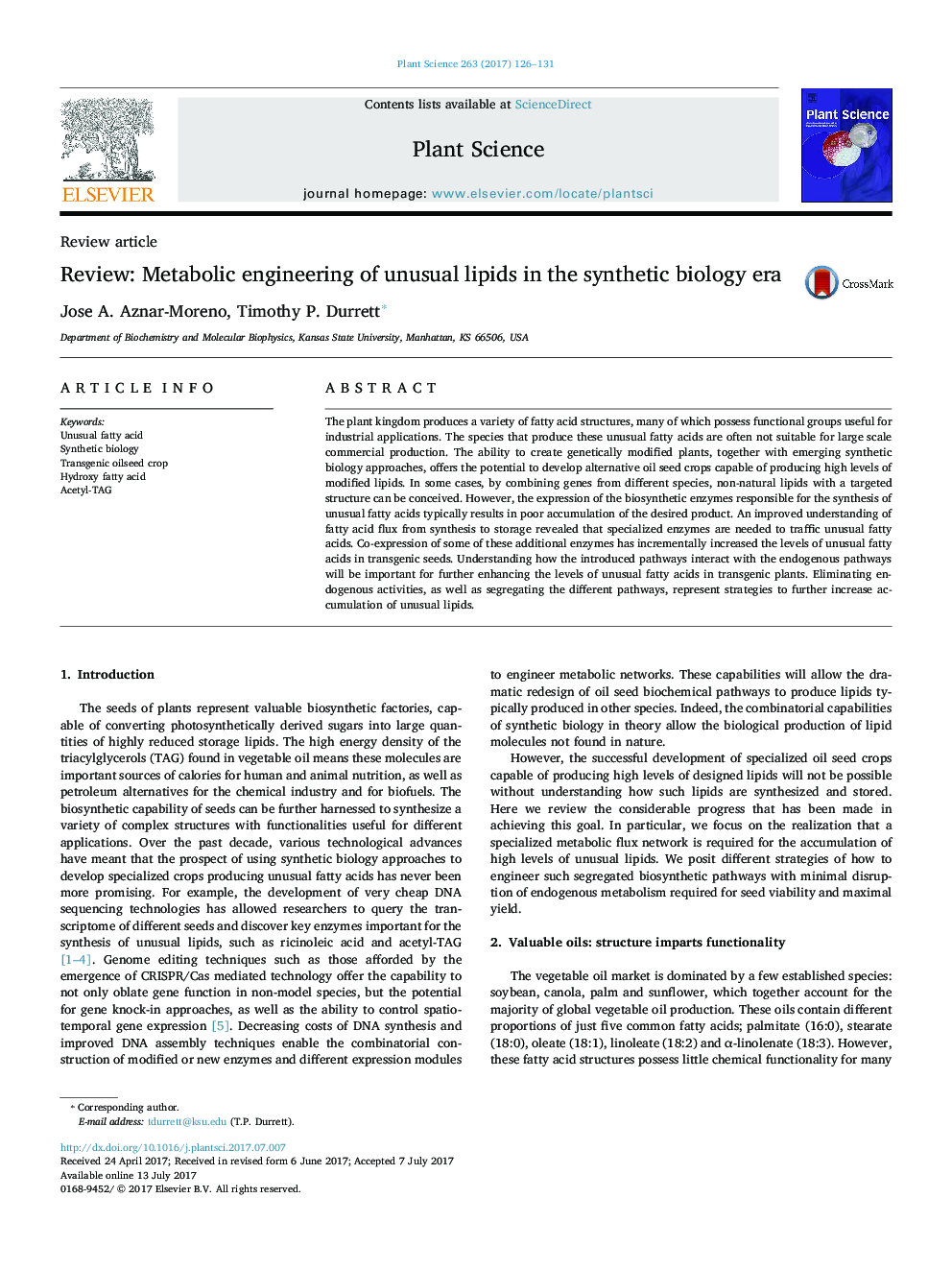| Article ID | Journal | Published Year | Pages | File Type |
|---|---|---|---|---|
| 5515750 | Plant Science | 2017 | 6 Pages |
â¢Transgenic oilseeds can be engineered to synthesize unusual lipids.â¢Enhanced production of unusual lipids requires the expression of multiple enzymes.â¢The interaction between endogenous and introduced pathways needs to be considered.â¢Eliminating competing endogenous enzymes can increase unusual lipid accumulation.â¢Pathway segregation represents a strategy to enhance unusual lipid synthesis.
The plant kingdom produces a variety of fatty acid structures, many of which possess functional groups useful for industrial applications. The species that produce these unusual fatty acids are often not suitable for large scale commercial production. The ability to create genetically modified plants, together with emerging synthetic biology approaches, offers the potential to develop alternative oil seed crops capable of producing high levels of modified lipids. In some cases, by combining genes from different species, non-natural lipids with a targeted structure can be conceived. However, the expression of the biosynthetic enzymes responsible for the synthesis of unusual fatty acids typically results in poor accumulation of the desired product. An improved understanding of fatty acid flux from synthesis to storage revealed that specialized enzymes are needed to traffic unusual fatty acids. Co-expression of some of these additional enzymes has incrementally increased the levels of unusual fatty acids in transgenic seeds. Understanding how the introduced pathways interact with the endogenous pathways will be important for further enhancing the levels of unusual fatty acids in transgenic plants. Eliminating endogenous activities, as well as segregating the different pathways, represent strategies to further increase accumulation of unusual lipids.
